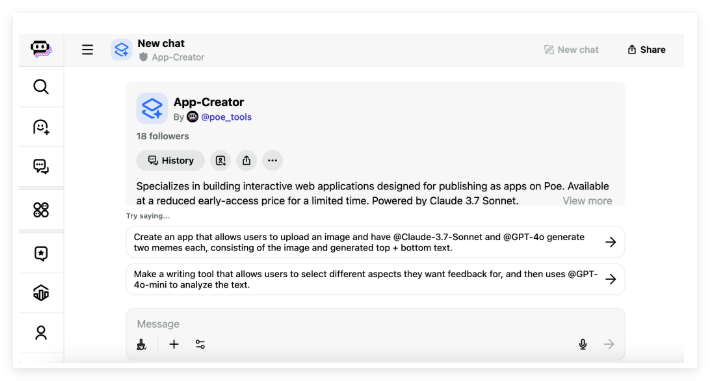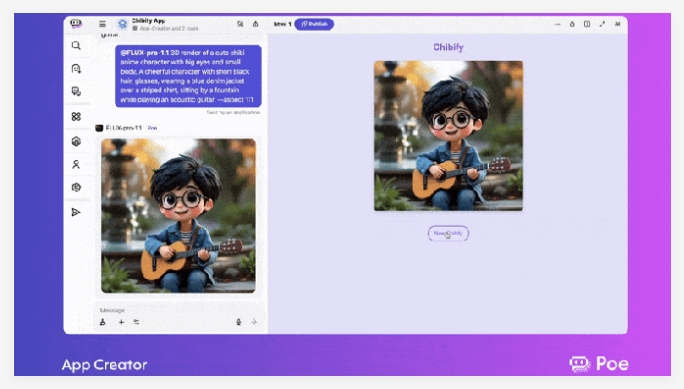Quora recently launched a new feature on its AI platform, Poe, to enable users to build custom AI applications. This feature, called "Poe Apps", allows users to create visual interfaces through simple descriptions on the Poe platform, and users can choose to use different AI models to implement their application ideas.

In the newly launched app creation tool, users simply describe the app they want to create, including the AI model specified to use, such as OpenAI's o3-mini or Google's video generation model Veo2. This tool is powered by Anthropic's recently released Claude3.7Sonnet, which translates user descriptions into code for the application interface and custom logic written in JavaScript.
Quora also demonstrates several application examples, including an application that converts photos into 3D anime-style art, using OpenAI's GPT-4o and Black Forest Labs' Flux-Pro-1.1 model. There is also an application that can remove unnecessary objects from images, using Bria's Bria Eraser model.

Currently, user-created Poe Apps are limited to sharing on web pages, and Quora says it will launch iOS and Android versions in the future. Whenever an application uses an AI model, the corresponding points are deducted from the user's Poe points balance. Free users can earn a certain amount of points per day, while Poe-power users who subscribe to $5 per month receive flexible daily or monthly points packages.
In a blog post, Quora revealed early access prices for app creators and hinted that options for app monetization may be launched in the future. Quora said: “This is an early launch feature and we have a long-term development roadmap that aims to provide creators with more capabilities, including the possibility of making money directly from their apps. We look forward to seeing yours Create and look forward to making Poe Apps better as the model code writing capabilities improve.”
The launch of Poe Apps is a continuation of Poe's web application feature launched in July last year. Similar to Anthropic's Artifacts and OpenAI's ChatGPT Canvas tool, both are dedicated workspaces where users can edit and add AI-generated content. While the applications these tools are able to generate are still relatively limited, they undoubtedly demonstrate advances in current models' coding capabilities.